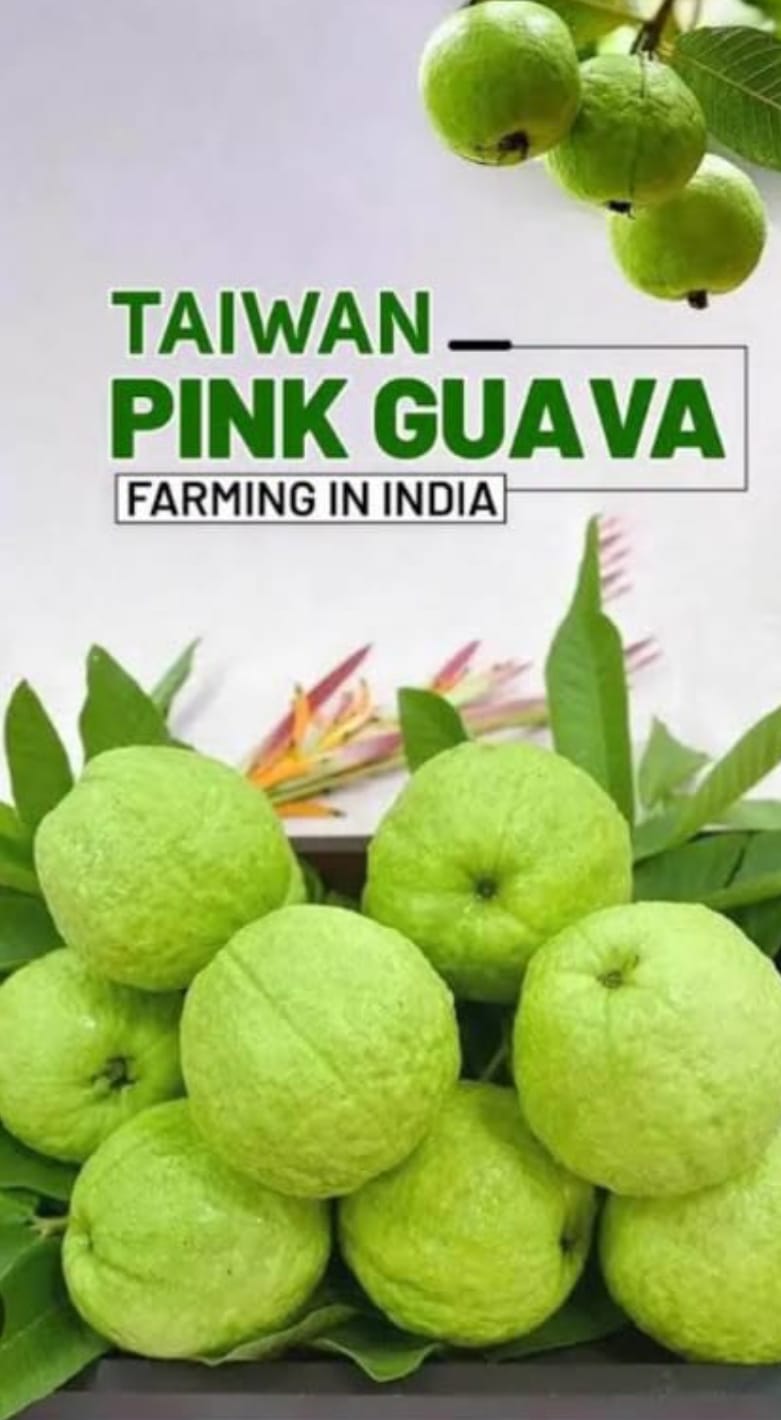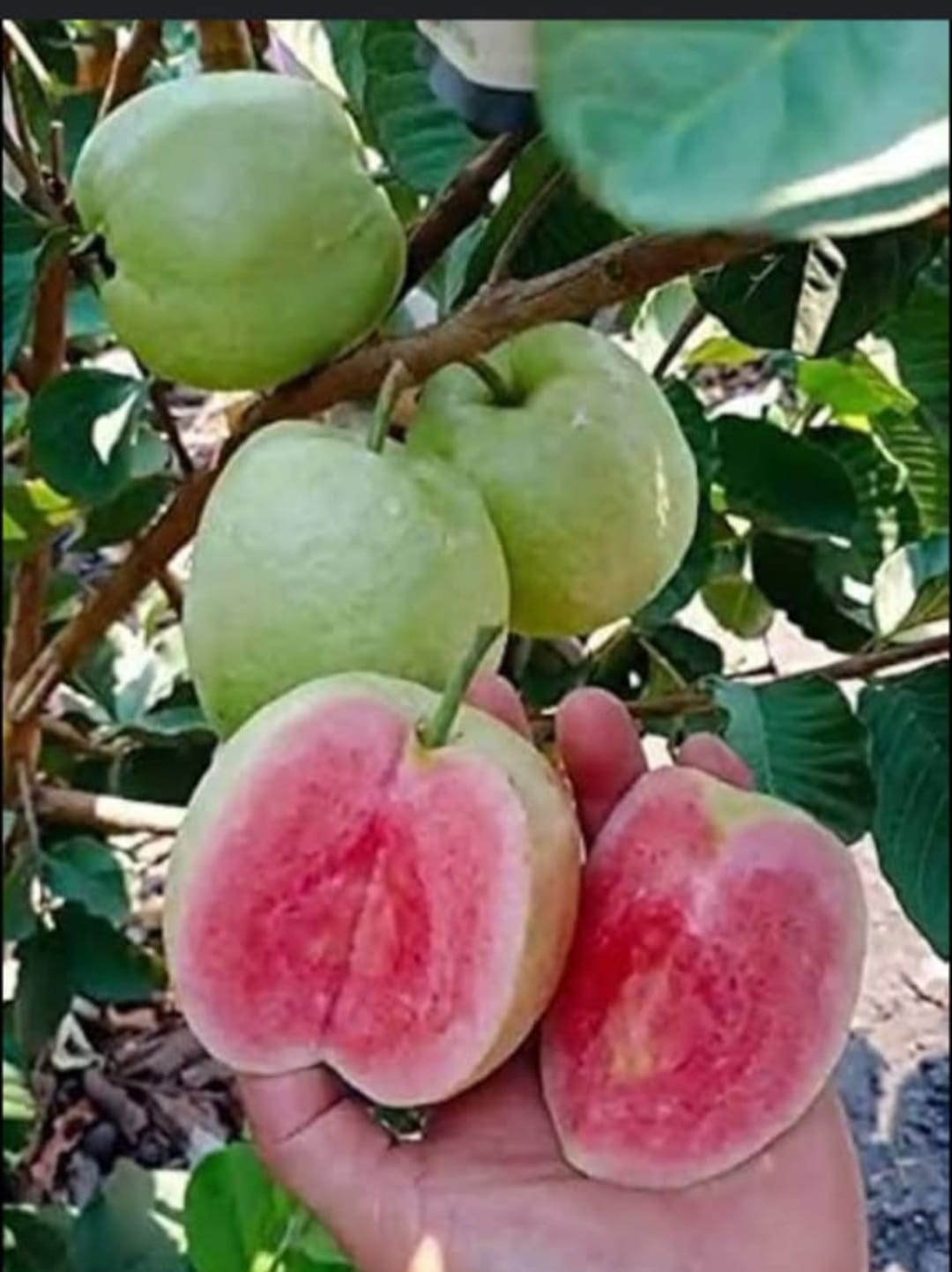Contect Us
+91 9512765331Guava

.jpeg)


Guava
According to experts, about 400 jumbo guava trees can be planted in one acre garden.
They bear fruit twice a year. A single tree produces about 50 to 60 kg of guava in a year. Farmers can get about 20 tons of guava from 1 acre of guava plantation.
Overview of Guava for Bioplants
Cultivation
- Climate: Guavas thrive in tropical and subtropical climates, making them suitable for a wide range of environments. They can tolerate both dry and humid conditions.
- Soil: Guava plants are adaptable to various soil types, including sandy, loamy, and clay soils, but they prefer well-drained soils with a pH between 5 and 7.
- Propagation: Guavas can be propagated through seeds, but vegetative propagation methods such as grafting, air layering, and cuttings are often preferred for maintaining specific cultivar characteristics.
Plant Characteristics
- Growth Habit: Guava plants are typically small to medium-sized trees or shrubs. They have a shallow root system and a robust trunk with a spreading canopy.
- Leaves: The leaves are opposite, simple, and oval to oblong with a pronounced midrib.
- Flowers: Guava flowers are white with numerous stamens, and they are typically borne singly or in small clusters.
- Fruit: The fruit varies in shape from round to oval, with a green skin that turns yellow, maroon, or remains green when ripe. The flesh can be white, pink, red, or yellow.
Benefits for Bioplants
Nutritional Content
- Rich in Vitamins and Minerals: Guava is high in vitamins C and A, dietary fiber, folate, and potassium, making it an excellent source of nutrition for humans and animals.
- Antioxidant Properties: Contains antioxidants such as vitamin C and flavonoids, which help in reducing oxidative stress and improving overall plant health.
Environmental Benefits
- Soil Improvement: Guava trees contribute to soil fertility through leaf litter, which decomposes and adds organic matter to the soil.
- Erosion Control: The extensive root system helps in preventing soil erosion, making it suitable for planting in areas prone to soil degradation.
- Biodiversity: Guava trees support various wildlife, including birds and insects, thus enhancing local biodiversity.
Agricultural Uses
- Intercropping: Guava can be used in intercropping systems with other crops to maximize land use efficiency and improve overall yield.
- Organic Farming: The guava plant's resistance to pests and diseases makes it suitable for organic farming practices.

